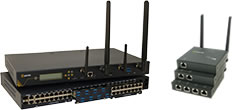
Snowden effect continues to impact the sale of data across borders
By Max BurkhalterOctober 28, 2014
Nearly a year has passed since the Snowden leaks took place, and the U.S. tech industry is still suffering increased suspicion from the international data center market. The New York Times reported that Microsoft lost several overseas customers as a direct result of the Snowden scandal, including government contracts in South America. Other companies have responded by ramping up construction of new data centers in international markets. All data centers managers interested in working with overseas partners must now develop a plan that accounts for the Snowden effect.
Following the new rules
San Francisco-based Salesforce.com is a prime example of how many companies utilizing data centers have reacted to the Snowden effect, according to Gigaom. The company is currently in the midst of an expansion in Europe that includes three data centers in the U.K., France and Germany. By building its data centers directly on European soil, Salesforce.com sidesteps the fear of foreign governments snooping around internationally held data. A persisting fear exists within the international data center community that the U.S. government holds the power to subpoena any foreign companies records when and if they are stored on U.S. soil. The International data center community will likely remain cool on cloud providers located solely in the United States until this perception fades.
International companies follow suit
American data centers aren't the only companies to respond to the Snowden effect. Data sovereignty has evolved from security fears directed toward the United States into a new standard for international business. For instance, expanding Chinese smartphone company Xiaomi recently announced plans to build a data center in India, reported Reuters. The move is in part a response to Xiaomi's own set of challenges when user trust declined following allegations that the company mishandled user data. Local ads were actually released in India warning consumers against purchasing Xiaomi phones. In response, the manufacturer plans to set up shop on Indian soil and rebuild relationships with the local community.
Dipping into the international market
Data center companies must become increasingly global in order to remain competitive, according to Data Center Knowledge. Building enormous data centers in foreign countries is not a always feasible solution, but that shouldn't limit companies from considering how their business might expand overseas. For example, establishing a small office hub near a client in another country, connected to the home network by way of remote console server, could help a establish a stronger brand identity with foreign partners.
Perle's wide range of 1 to 48 port Perle Console Servers provide data center managers and network administrators with secure remote management of any device with a serial console port. Plus, they are the only truly fault tolerant Console Servers on the market with the advanced security functionality needed to easily perform secure remote data center management and out-of-band management of IT assets from anywhere in the world.



